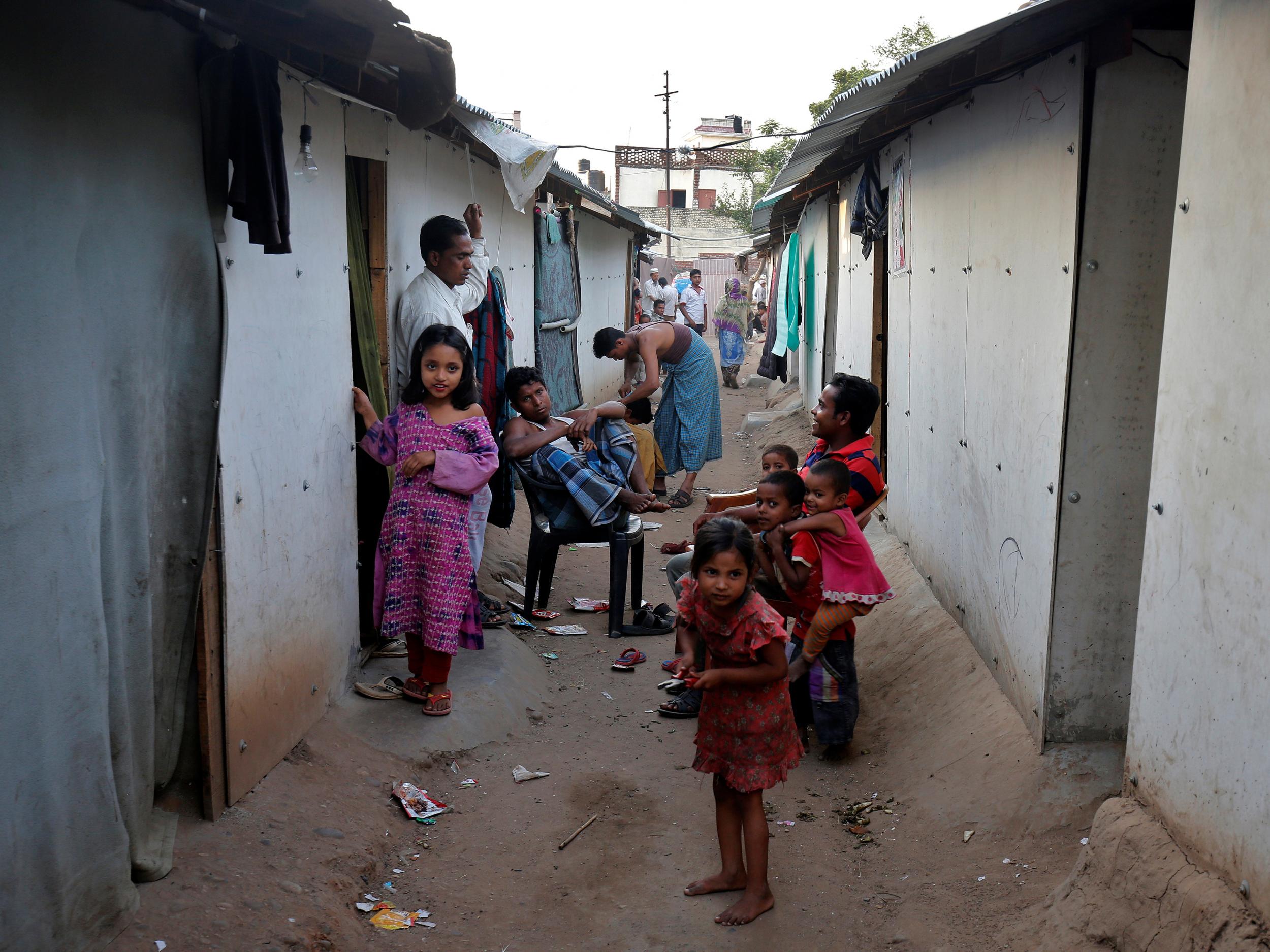India brands all 40,000 Rohingya Muslims illegal immigrants and plans to deport them, minister says
Parliament orders state authorities to round-up all those in country without permission, including refugees fleeing persecution in Buddhist-majority Burma

Your support helps us to tell the story
From reproductive rights to climate change to Big Tech, The Independent is on the ground when the story is developing. Whether it's investigating the financials of Elon Musk's pro-Trump PAC or producing our latest documentary, 'The A Word', which shines a light on the American women fighting for reproductive rights, we know how important it is to parse out the facts from the messaging.
At such a critical moment in US history, we need reporters on the ground. Your donation allows us to keep sending journalists to speak to both sides of the story.
The Independent is trusted by Americans across the entire political spectrum. And unlike many other quality news outlets, we choose not to lock Americans out of our reporting and analysis with paywalls. We believe quality journalism should be available to everyone, paid for by those who can afford it.
Your support makes all the difference.All of an estimated 40,000 Rohingya Muslims living in India are illegal immigrants, even those registered with the UN refugee agency, and the government aims to deport them, a senior government official has told Reuters.
Junior interior minister Kiren Rijiju told parliament last week the central government had directed state authorities to identify and deport illegal immigrants including Rohingya, who face persecution in Buddhist-majority Burma.
The United Nations High Commissioner for Refugees (UNHCR) has issued identity cards to about 16,500 Rohingya in India that it says help them “prevent harassment, arbitrary arrests, detention and deportation”.
But Mr Rijiju, a high-profile minister in Prime Minister Narendra Modi’s Hindu nationalist government, said in an interview that the UNHCR registration was irrelevant.
“They are doing it, we can’t stop them from registering. But we are not signatory to the accord on refugees,” he said.
“As far as we are concerned they are all illegal immigrants. They have no basis to live here. Anybody who is an illegal migrant will be deported.”
The UNHCR’s India office said on Monday the principle of non-refoulement or not sending back refugees to a place where they face danger was considered part of customary international law and binding on all states whether they have signed the Refugee Convention or not.
The office said it had not received any official word about a plan to deport Rohingya refugees, and had not got any reports deportations were taking place.
The treatment of the roughly one million Rohingya in Burma has emerged as its most contentious human rights issue as it makes a transition from decades of harsh military rule.
The Rohingya are denied citizenship in Burma and classified as illegal immigrants, despite claiming roots there that go back centuries, with communities marginalised and occasionally subjected to communal violence.
Hundreds of thousands of Rohingya have fled from Burma, with many taking refuge in Bangladesh, and some then crossing a porous border into Hindu-majority India.
Many have also headed to South East Asia, often on rickety boats run by people-smuggling gangs.
Rohingya are generally vilified in India and over the past few months, there has been a string of anti-Rohingya protests.
Mr Rijiju declined to comment on the deportation process, even as some human rights activists question the practicality of rounding up and expelling thousands of people scattered across the country.
“There’s a procedure, there is a rule of law,” Mr Rijiju said.
“We can’t throw them out just like that. We can’t dump them in the Bay of Bengal.”
India said last Friday it was in talks with Bangladesh and Burma about the deportation plan.
But deportation is likely to be difficult, given Burma’s position that all Rohingya need to be scrutinised before they can be allowed back in as citizens.
Burma officials were not immediately available for comment.
A senior government official in Bangladesh, which has complained of being burdened by the heavy flow of refugees, has said India was helping it solve the crisis.
More than 75,000 Rohingya have fled to Bangladesh since 9 October after an insurgent group attacked Burma border police posts, prompting a security crackdown in which troops have been accused of the murder and rape of Rohingya civilians.
Reuters
Join our commenting forum
Join thought-provoking conversations, follow other Independent readers and see their replies
Comments